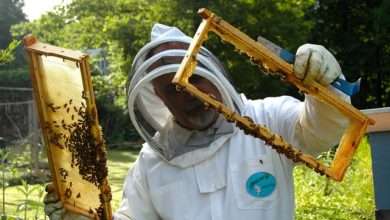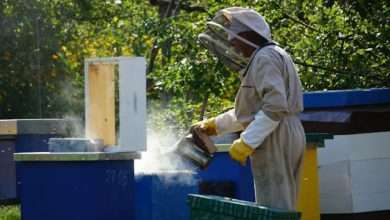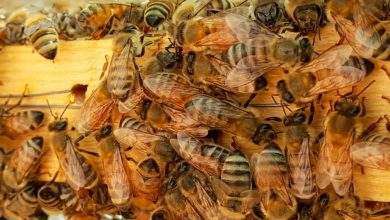How to Start Beekeeping in Texas
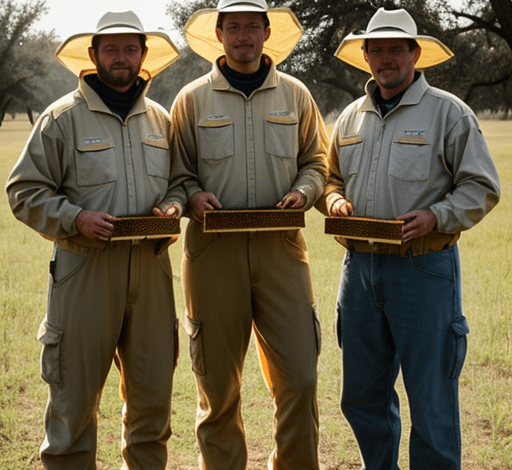
The Fascinating World of Beekeeping: A Beginner’s Guide
Are you interested in the captivating world of beekeeping? Perhaps you’re considering becoming a beekeeper in Texas but don’t know where to start. Look no further! In this beginner’s guide, we will provide you with essential tips and tricks to kickstart your beekeeping journey.
The Rewards of Beekeeping
Beekeeping is more than just a hobby; it’s a rewarding and sustainable practice that promotes biodiversity and helps maintain the delicate balance of our ecosystem. Whether you’re interested in harvesting honey, supporting pollination, or simply nurturing these incredible insects, this guide is for you.
With our comprehensive guide, you’ll gain the confidence and knowledge to embark on your beekeeping adventure. So, put on your beekeeping suit, grab your smoker, and let’s dive into the fascinating world of beekeeping together!
Why Start Beekeeping?
- Connecting with Nature: Beekeeping offers the opportunity to connect with nature in a unique and meaningful way. It allows you to observe bees in their natural habitat and gain a deeper understanding of their role in the ecosystem.
- Supporting Garden Pollination: Beekeeping can significantly impact garden pollination. The presence of a bee colony can enhance the pollination process, leading to better crop yields and improved garden health. Therefore, by becoming a beekeeper, one can actively support garden pollination and contribute to the overall well-being of the environment.
- Learning about Bee Behavior: Engaging in beekeeping provides a fascinating insight into the complex social structure of bees. It’s an educational experience that allows you to appreciate the intelligence and organization within a bee colony.
- Enjoying Honey Production: Another rewarding aspect of beekeeping is the ability to enjoy the delicious rewards of honey production. It’s a satisfying and tangible outcome of the care and effort invested in beekeeping.
- Educational Experience for Children: Beekeeping can also be a great educational experience for children, providing them with valuable lessons about nature, sustainability, and the importance of bees in our ecosystem.
- Therapeutic Relaxation for Adults: For adults, beekeeping can serve as a source of therapeutic relaxation. It offers a peaceful and meditative experience that allows individuals to unwind and connect with the natural world.
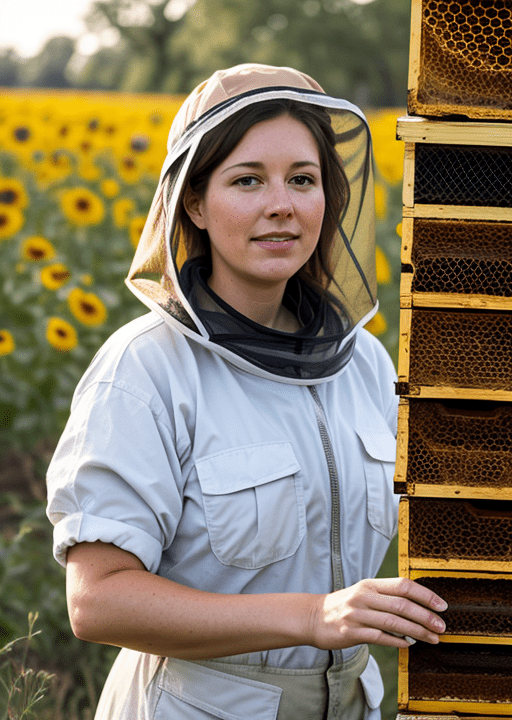
Texas’s Unique Climate and Agricultural Landscape for Beekeeping
Texas, the second-largest state in the United States, boasts a diverse and complex climate, making it a haven for beekeeping enthusiasts. With its vast agricultural landscape and diverse flora, Texas offers an unparalleled opportunity for beekeepers to flourish.
The Climate:
- Texas experiences a wide range of climate variations, from arid desert regions to coastal plains and humid subtropical areas.
- The state is known for its long, hot summers and mild winters, making it conducive to beekeeping throughout the year.
- The ample sunshine and warm temperatures provide the ideal environment for honeybees to thrive and forage for nectar and pollen.
Biodiversity and Floral Resources:
- Texas is home to an incredible array of vegetation, resulting in diverse floral resources available for honeybees.
- Native wildflowers, including bluebonnets, Indian paintbrushes, and sunflowers, offer abundant sources of nectar and pollen.
- The state’s extensive agricultural landscape, comprising crops like cotton, sorghum, citrus fruits, and pecans, provides additional forage for bees.
- Texas also has vast expanses of wildlands, forests, and rangelands where bees can find nectar and pollen from a variety of trees, shrubs, and wildflowers.
Water Availability:
- Despite its reputation for aridity, Texas harbors numerous water resources crucial for beekeeping.
- Rivers, lakes, and reservoirs dot the landscape, ensuring a sufficient water supply for bees during periods of drought and high temperatures.
- These water sources aid in maintaining the hydration and overall health of bee colonies, enabling them to thrive in the Texan climate.
Varroa Mite Resistance:
- Texas bee populations have exhibited higher resistance to the destructive varroa mite compared to other regions.
- The relatively dry climate of Texas may contribute to this resilience, as varroa mites thrive in more humid conditions.
- Beekeepers in Texas benefit from the reduced impact of this parasitic mite, resulting in healthier colonies that can better withstand environmental challenges.
Beekeeping Support and Community:
- Texas boasts a vibrant beekeeping community that actively supports and engages with beekeepers of all levels.
- Local beekeeping associations and organizations provide resources, educational opportunities, and mentorship programs, fostering the growth and success of beekeepers in the state.
- The diverse agricultural landscape of Texas also encourages collaboration between beekeepers and farmers, leading to mutual benefits by promoting pollination services and supporting local ecosystems.
Texas’s unique climate and agricultural landscape provide a fertile ground for thriving beekeeping endeavors. From its diverse flora and abundant floral resources to its varroa mite resistance and supportive beekeeping community, Texas offers an ideal environment for bees to flourish.
Legal Requirements and Regulations for Beekeeping in Texas
Beekeeping in Texas has gained significant popularity in recent years, as bee enthusiasts recognize the vital role of honeybees in pollination and honey production. However, it is crucial for beekeepers to be aware of the legal requirements and regulations governing their activities.
Registration and Licensing:
- The Texas Apiary Inspection Service (TAIS): The TAIS is responsible for inspecting and regulating beekeeping activities in Texas. As a beekeeper, it is mandatory to register your apiary with the TAIS. Registration forms can be obtained from their website or local agriculture offices.
- Apiary Locations: Beekeepers must ensure that their apiaries are situated on suitable and appropriately zoned properties. Regulations may vary depending on the county or municipality, so it is essential to consult local zoning laws and acquire any necessary permits.
- Colony Identification: Each beehive should be marked with a distinctive identification number or color code, allowing for easy identification during inspections. The identification system helps the TAIS in monitoring and managing bee diseases, ensuring the health of honeybee populations.
Health Standards and Inspections:
- Bee Diseases and Pests: To safeguard honeybee health, Texas has adopted measures to control and prevent the spread of bee diseases and pests. Beekeepers must adhere to strict hygiene practices and participate in disease surveillance programs, reporting any signs of illness or infestation to the TAIS.
- Regular Inspections: The TAIS conducts periodic inspections to assess colony health and compliance with regulatory guidelines. It is the responsibility of every beekeeper to facilitate inspections by providing unrestricted access to their apiaries and maintaining detailed records of hive management practices.
Legal Obligations and Best Practices:
- Honey Production and Processing: Beekeepers must adhere to specific regulations when harvesting, extracting, and processing honey for commercial purposes. Compliance with food safety and labeling regulations ensures consumer protection and fosters trust in Texas honey products.
- Transportation of Bees: To prevent the spread of diseases and pests, transporting bees within or across state lines requires compliance with specific regulations. Beekeepers must ensure proper hive closures, provide adequate ventilation, and obtain necessary movement permits when transporting bees.
- Liability and Insurance: Although beekeeping is generally considered a low-risk activity, accidents and unforeseen events can happen. Beekeepers are advised to consider liability insurance coverage to protect themselves from potential legal claims, ensuring the financial security of their operations.
As beekeeping continues to grow in popularity across Texas, understanding the legal requirements and regulations is crucial for every beekeeper. By registering with the TAIS, maintaining healthy colonies, and complying with the various rules and guidelines, beekeepers contribute to the sustainable growth of the industry while safeguarding honeybee populations.
Essential Equipment for Beekeeping in Texas
Beekeeping can be a rewarding and fulfilling activity, but it requires the right tools and equipment to ensure the success of your beekeeping venture. In the state of Texas, where the climate and environmental factors can vary, it is important to have the appropriate equipment to properly care for your bees and maximize honey production.
Beehive Components
When setting up a beehive, it is essential to have the right components to provide a suitable environment for the bees. The most common type of hive used in beekeeping is the Langstroth hive, which consists of several crucial components:
- Bottom Board: The bottom board serves as the base of the hive, providing a sturdy foundation for the entire structure.
- Brood Boxes: These deep wooden boxes house the brood frames where the queen lays her eggs and the bees raise their young.
- Honey Supers: Shallower boxes placed above the brood boxes to store surplus honey produced by the bees.
- Frames and Foundation: Wooden or plastic frames that hold beeswax sheets (foundation) for bees to build comb and store honey.
- Inner and Telescoping Cover: The inner cover is placed on top of the uppermost brood box, providing insulation and ventilation, while the telescoping cover acts as a protective top covering to shield the hive from the elements.
Protective Gear
Ensuring the safety and protection of the beekeeper is paramount when tending to a beehive. The following protective gear is essential for beekeepers in Texas:
- Beekeeping Suit: A full-body suit made of lightweight, breathable material that protects the beekeeper from bee stings during hive inspections and honey extraction. It includes a full body suit and a veil to protect the face.
- Bee Gloves: Durable gloves that cover the hands and provide an additional layer of protection against bee stings.
- Beekeeping Boots: Tall, sturdy boots designed to prevent bees from crawling up pant legs and provide additional protection for the feet and lower legs.
Tools for Hive Management
In addition to the hive components and protective gear, certain tools are necessary for managing the beehive effectively:
- Hive Tool: A versatile tool used to pry apart hive components, scrape off excess wax or propolis, and access hard-to-reach areas within the hive.
- Smoker: A device used to release cool, white smoke, which helps calm the bees and makes hive inspections and manipulation easier.
- Bee Brush: A soft-bristled brush utilized to gently remove bees from frames and hive components during inspections.
- Queen Excluder: A metal or plastic barrier that prevents the queen from laying eggs in the honey storage area by separating the brood box from the honey supers.
- Hive Feeder: Used to provide supplementary nutrition or water for bees during periods of scarcity.
Honey Extraction Equipment
Once the bees have produced honey, the following equipment is necessary for extracting and storing the honey:
- Honey Extractor: A mechanical device used to spin honey frames and extract honey through centrifugal force.
- Uncapping Knife: A heated knife specifically designed for removing the beeswax caps from frames before honey extraction.
- Strainer or Sieve: A fine mesh filter used to remove impurities and wax particles from extracted honey.
- Storage Containers: Airtight containers, such as jars or bottles, used to store harvested honey and keep it fresh.
Having the right equipment is essential for the success of your beekeeping endeavor in Texas. By ensuring that you have all the necessary tools, protective gear, and extraction equipment, you can create a suitable environment for the bees and maximize honey production.
Choosing the Perfect Location for Your Beehives
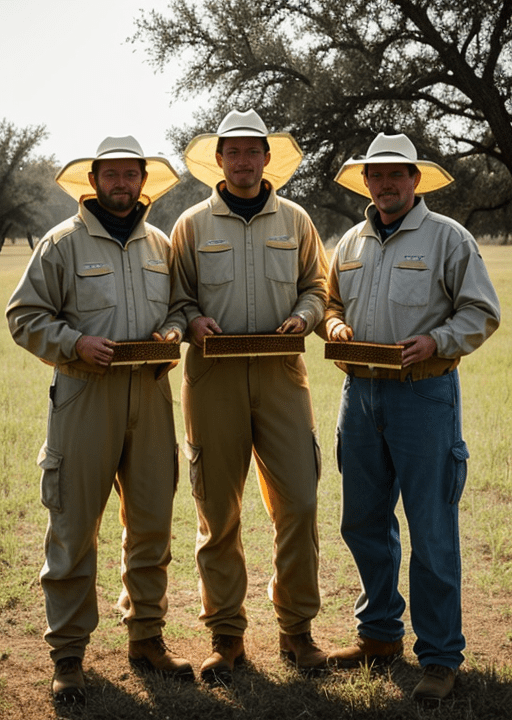
Selecting the right location for your beehives is crucial to the success of your colonies. The location can impact the bees’ ability to thrive and produce honey. Here are some key factors to consider when choosing a site for your beehives:
- Sun Exposure: Honeybees thrive in sunny environments, so it’s important to choose a location where the hives will receive ample sunlight throughout the day. Many experienced beekeepers recommend facing the colonies toward the morning sun to ensure they get the optimal amount of sunlight.
- Wind Protection: Providing your beehives with some degree of wind protection is essential. Strong winds can disorient bees and hinder their foraging efforts. Consider natural windbreaks such as trees, fences, or buildings when planning the placement of your hives.
- Accessibility: Easy access to the beehives for regular inspections, maintenance, and honey collection is important. Placing the hives on level ground, away from obstructions, will make these tasks more manageable.
- Distance from Human Activity: Keep the beehives at a safe distance from areas with high human activity to minimize the risk of disturbances or conflict.
- Water Source: Ensure that there’s a nearby water source, as bees require water for various activities within the hive.
- Vegetation and Floral Resources: Choose a location with abundant floral resources to ensure that bees have access to nectar and pollen to sustain the colony.
- Space: Provide enough space between hives to prevent overcrowding, which can lead to competition among colonies.
- Local Regulations: Check with local authorities for any regulations or zoning restrictions that may apply to beekeeping in your area.
- Predators: Identify and address potential threats from predators such as bears, skunks, or raccoons when selecting a location for your beehives.
The success of your beekeeping endeavors greatly depends on the location of your beehives. By carefully considering these factors and making informed decisions, you can create an optimal environment for your colonies to thrive and produce high-quality honey.
Sourcing Bees in Texas: Where to Find Quality Bees for Your Apiary
When it comes to beekeeping, sourcing high-quality bees is a vital aspect of ensuring a thriving and successful apiary. Texas, known for its abundant agriculture and favorable environment for beekeeping, offers several reliable options for obtaining bees.
- Local Beekeeping Associations: One of the most convenient and reliable sources for acquiring bees in Texas is through local beekeeping associations. These associations have established connections with reputable breeders and even breed bees themselves. By reaching out to your nearest local beekeeping association, you can get recommendations on trusted bee suppliers within the state. These associations not only provide healthy and well-maintained bees but also offer valuable resources, mentorship, and support throughout your beekeeping journey.
- Bee Breeders and Suppliers: Texas is home to numerous bee breeders and suppliers specializing in providing high-quality bees for apiaries. These breeders offer both package bees and nucleus colonies (nucs) for purchase. Package bees consist of a queen accompanied by a sufficient number of worker bees, while nucs consist of a queen, worker bees, and comb with brood, providing a head start to your colony. Purchasing from bee breeders and suppliers ensures the acquisition of healthy and productive bees for your apiary, albeit with some planning and additional costs.
- Local Beekeepers: Another valuable source for acquiring bees in Texas is through local beekeepers in your area. Experienced beekeepers often have surplus bees they can sell or even offer swarm captures. Engaging with local beekeepers not only provides you with access to bees but also enables you to tap into their expertise, learn from their experiences, and establish valuable connections within the beekeeping community.
- Online Bee Suppliers: The advent of e-commerce has made it possible to access bees from various suppliers across the country, including in Texas. Online bee suppliers offer the convenience of ordering bees from the comfort of your home and provide a wide range of choices in terms of bee packages, nucs, and different bee breeds. Carefully researching and choosing reputable online suppliers with good reviews is crucial to ensure the quality and health of the bees being shipped.
- Swarm Traps: Placing swarm traps can be an excellent strategy to attract swarming bees and capture them effortlessly. Swarming is a natural occurrence in the life cycle of honey bees, and by setting up swarm traps in strategic locations, you can increase your chances of capturing a passing swarm. These swarms can then be integrated into your apiary, significantly boosting its size and productivity.
- Bee Removal Services: Contacting local bee removal services can be a cost-effective way to acquire bees. These services are responsible for capturing and relocating bees that may pose a threat to public safety. By expressing your interest in adopting a colony, you can provide them with a suitable home. While this method may require patience and a bit of luck, it can be an exciting and economical way to source bees while contributing to the preservation of honeybee populations in Texas.
Sourcing bees is a crucial step in establishing and maintaining a successful apiary. By considering the various options available in Texas, such as local beekeeping associations, bee breeders and suppliers, local beekeepers, online bee suppliers, and bee swarm removal services, you can find the perfect match for your beekeeping endeavors.
The Benefits of Joining a Beekeeping Club
If you’re considering becoming a beekeeper or are already one, joining a beekeeping club can significantly enhance your beekeeping experience. There are numerous advantages to becoming a member of a beekeeping club, including networking opportunities, learning and education, support and mentorship, access to valuable resources, and social engagement.
- Networking Opportunities: By joining a beekeeping club, you gain access to a network of like-minded individuals who share your passion for beekeeping. This network provides valuable opportunities to exchange ideas, experiences, and knowledge with fellow beekeepers. Additionally, forming partnerships within the club can be beneficial for your beekeeping endeavors.
- Learning and Education: Beekeeping clubs often organize informative meetings, workshops, and educational events aimed at expanding members’ knowledge and expertise in beekeeping. These events cover a wide range of topics, from bee behavior and hive management to honey production and disease prevention. Participating in these educational opportunities allows you to enhance your skills and stay updated with the latest trends and best practices in beekeeping.
- Support and Mentorship: Joining a beekeeping club grants you access to a supportive community of experienced beekeepers who are willing to provide guidance, tips, and support. Having mentors within the club can be particularly beneficial for beginners who may have many questions and uncertainties about beekeeping.
- Access to Resources: Many beekeeping clubs offer access to valuable resources that can be hard to come by as an individual beekeeper. These resources may include beekeeping libraries, equipment rentals, bulk purchasing options for supplies, and apiary sites for members to keep their hives. These resources can save you time and money while providing you with the tools and facilities you need to succeed in beekeeping.
- Social Engagement: Participating in club activities allows you to be part of a community that extends beyond beekeeping. Beekeeping clubs often organize social events, volunteer activities, and group outings, providing members with the chance to build friendships and connections with like-minded individuals.
Joining a beekeeping club offers a myriad of benefits, from valuable networking opportunities and educational events to access to vital resources and a supportive community. It can significantly enhance your beekeeping journey and make it more enjoyable and fulfilling.
Here is a List of Local Bee Clubs in Texas:
- Alamo Area Beekeepers Association
- Austin Area Beekeepers Association
- Bees in the East Club
- Bell/Coryell Beekeepers Association
- Big Country Beekeepers Association
- Blanco County Beekeepers Association
- Brazoria County Beekeepers Association
- Brazos Valley Beekeepers Association
- Caddo Trace Beekeepers Association
- Caprock Beekeepers Association
- Central Texas Beekeepers Association
- Chisholm Trail Beekeepers
- Collin County Hobby Beekeepers Association
- Colorado County Beekeepers Association
- Comal County Beekeepers Association
- Concho Valley Beekeepers Association
- Deep East Texas Beekeepers Association
- Denton County Beekeepers Association
- Dino-Beekeepers Association
- East Texas Beekeepers Association
- Elgin Area Beekeepers Association
- Elm Fork Beekeepers Association
- Fayette County Beekeepers Association
- Fort Bend Beekeepers Association
- Harris County Beekeepers Association
- Hays County Beekeepers Association
- Heart of Texas Beekeepers Association
- Henderson County Beekeepers Association
- Hill County Beekeepers Association
- Hopkins County Beekeepers Association
- Houston Beekeepers Association
- Houston Natural Beekeepers Association
- Hunt County Beekeepers Association
- Johnson County Beekeepers Association
- Kaufman Area Beekeepers Association
- Lamar County Beekeepers Association
- Longview Beekeepers Association
- Magnolia SWARM Beekeepers
- Marshall Beekeeping Association
- Metro Beekeepers Association
- Montgomery County Beekeepers Association
- Northeast Texas Beekeepers Association
- Palo Duro Bee Club
- Pineywoods Beekeepers Association
- Red River Valley Beekeepers Association
- Rusk County Beekeepers Association
- San Jacinto County Beekeepers
- San Marcos Area Bee Wranglers
- Temple Area Beekeepers Association
- Texarkana Beekeepers Association
- Texas Hill Country Beekeepers Association
- Travis County Beekeepers Association
- Tri County Beekeepers Association
- Tyler County Bee Club
- Walker County Area Beekeepers Association
- Williamson County Area Beekeepers Association
- Wise Texas Bee Club
- Wood County Beekeepers Association
Important Tasks and Duties of Beekeepers
Beekeeping is a rewarding and fulfilling hobby or profession that requires dedication and a keen eye for detail. To ensure the health and productivity of your bee colonies, it is essential to perform a variety of regular tasks and responsibilities.
Hive Inspections
Regular inspections of bee hives are crucial for ensuring the well-being of the bees and the overall productivity of the colony. During these inspections, beekeepers should carefully observe the population of the hive, the pattern of brood development, the availability of honey stores, and any indications of disease or pests.
Hive inspections are essential for maintaining the health and productivity of bee colonies. By monitoring the condition of the hive, beekeepers can address any issues promptly and ensure the well-being of the bees.
Feeding and Supplementing
Depending on the availability of nectar and pollen sources in the surrounding environment, beekeepers may need to provide supplementary feeding to their bees. This is particularly important during dearth periods when natural food sources may be scarce. Supplemental feeding can involve providing sugar water or commercially available bee supplements to ensure that the bees have an adequate food supply.
Feeding and supplementing are critical for sustaining the bees during times of food scarcity. By providing supplementary food, beekeepers can prevent hunger and support the overall health of the colony.
Supering and Harvesting
In regions like Texas, where honey flows can be abundant, beekeepers must add supers or additional bee boxes to their hives to accommodate the surplus honey production. Monitoring the hive’s honey stores and harvesting excess honey at the right time is essential to maintain the hive’s productivity.
Proper management of supering and harvesting is vital for maximizing honey production while ensuring that the bees have enough space to thrive. By monitoring the hive’s honey stores and harvesting surplus honey when appropriate, beekeepers can maintain a healthy and productive colony.
Swarm Prevention and Management
The warm climate of Texas can contribute to rapid colony growth and increase the risk of swarming among bee colonies. Beekeepers must implement effective swarm prevention techniques to minimize the likelihood of swarming, such as providing ample space within the hive, conducting regular inspections, and splitting colonies when necessary.
Implementing proactive measures to prevent swarming is essential for maintaining the stability and productivity of bee colonies. By carefully managing colony growth and addressing swarm risks, beekeepers can ensure the well-being of their bees.
Queen Management
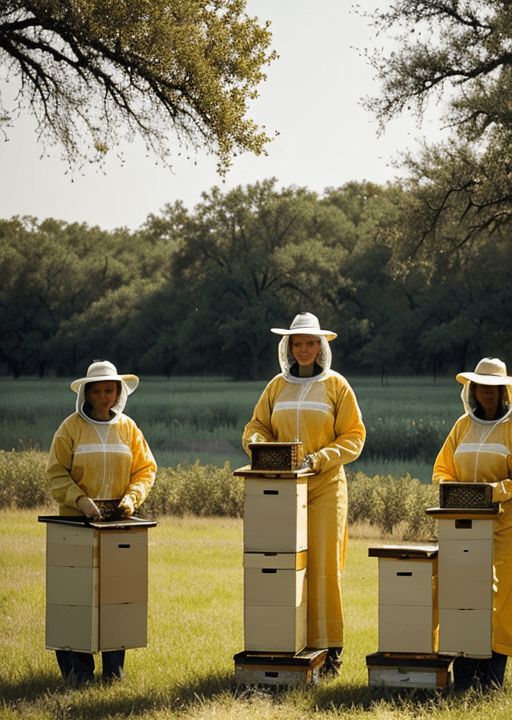
Effective queen management is crucial for maintaining the overall health and productivity of bee colonies. Beekeepers must monitor the performance of the queen and take necessary measures to ensure her continued health and productivity. This may involve requeening the colony when necessary to maintain its strength and vitality.
The queen plays a pivotal role in the success of the bee colony, and effective queen management is essential for sustaining a robust and productive hive. By monitoring the queen and addressing any issues promptly, beekeepers can support the long-term success of their colonies.
Planting a Honeybee-Friendly Garden – Native Pollinators in Texas
As pollinators, bees play a vital role in food production and maintaining biodiversity. By creating a garden that nurtures honeybees and supports native pollinators, we can contribute to their conservation efforts and foster a thriving ecosystem.
Here is a list of native pollinator plants specifically suited for the diverse ecosystem of the Lone Star State.
Purple Coneflower (Echinacea purpurea)
- Known for its striking purple petals and prominent cone-shaped center, the Purple Coneflower is a favorite among both gardeners and honeybees.
- Its nectar-rich flowers attract not only honeybees but also a variety of butterflies and native bees.
- By planting Purple Coneflowers in your garden, you are offering an abundant food source for honeybees throughout the blooming season.
Texas Lantana (Lantana urticoides)
- Texas Lantana is a tough and resilient plant that thrives in the heat and dry conditions often found in the state.
- Its vibrant clusters of yellow, orange, or red flowers produce an abundance of nectar, attracting honeybees, butterflies, and hummingbirds.
- This native plant blooms from spring to fall, providing a consistent food source for pollinators in your garden.
Gregg’s Mistflower (Conoclinium greggii)
- Gregg’s Mistflower, also known as Blue Mistflower, is a lovely perennial with clusters of small, powder-blue flowers that bloom from summer to fall.
- Its sweet nectar is especially attractive to various species of butterflies, honeybees, and solitary bees.
- Planting Gregg’s Mistflower not only enhances the beauty of your garden but also ensures a reliable food source for honeybees and other pollinators when other flowers may be scarce.
Flame Acanthus (Anisacanthus quadrifidus var. wrightii)
- Flame Acanthus is a stunning perennial shrub that displays fiery red tubular flowers from spring to fall.
- Its tubular shape caters to the feeding style of hummingbirds and long-tongued bees, such as honeybees.
- This low-maintenance plant thrives in dry, sandy soils and is well-suited for the Texas climate.
White Prickly Poppy (Argemone albiflora)
- The White Prickly Poppy is an enchanting wildflower that blooms with large, white, papery petals from spring to summer.
- Both honeybees and native bees are drawn to its rich pollen and nectar.
- This drought-tolerant plant thrives in open spaces and adds elegance to any garden while supporting honeybees and other pollinators.
Planting a honeybee-friendly garden that supports native pollinators is a rewarding and impactful way to contribute to the health of Texas’ ecosystems. By choosing native plants, creating diverse habitats, and maintaining your garden with pollinators in mind, your efforts can help sustain honeybees and their vital role as pollinators.
Selling Honey in Texas
If you are a beekeeper in Texas looking to sell your honey, it is important to be aware of the regulations and requirements set forth by the state.
- Licensing and Permit Requirements: To legally sell honey in Texas, beekeepers must obtain the required licenses and permits. The Texas Department of Agriculture (TDA) oversees the regulations pertaining to beekeeping and honey sales in the state. Beekeepers are required to hold a valid Texas Apiary Inspection Certificate (TAIC). This certification ensures that your operation complies with the necessary standards and guidelines relating to bee health and honey production.
- Labeling Requirements: Once you have obtained the necessary licenses and permits, it is vital to ensure that your honey is properly labeled according to the regulations set by the TDA. All containers of honey for sale must include specific information such as the name and address of the producer, the net weight or volume of the honey, and the grade or classification of the honey (if applicable). It is crucial to accurately represent the content and quality of your honey, allowing consumers to make informed choices.
- Inspections and Compliance: The TDA conducts regular inspections to ensure beekeepers are adhering to the regulations governing honey sales. These inspections may include examinations of honey processing facilities, equipment sanitation procedures, and overall compliance with health and safety standards. It is important to maintain detailed records of your beekeeping activities, including hive inspections, honey extraction processes, and any medications or treatments used. By doing so, you can demonstrate your commitment to compliance and provide transparency to the regulatory authorities.
- Food Safety Compliance: As a beekeeper selling honey in Texas, you are subject to food safety regulations that aim to protect consumer health. It is crucial to follow proper hygiene practices during honey extraction and processing to prevent contamination. Keep your extraction area clean and sanitized, and ensure that all equipment and utensils used in honey production are thoroughly washed and disinfected. Additionally, monitor the humidity and temperature conditions in your storage area to maintain the quality and safety of your honey.
- Marketing and Sales: When it comes to marketing and selling your honey, Texas has specific guidelines to help ensure fair competition and consumer protection. Beekeepers should avoid false advertising or misrepresentations regarding the nature or quality of their honey. It is also important to adhere to fair packaging practices and not to sell any honey that is adulterated or of substandard quality. By offering a high-quality product and maintaining ethical business practices, you can build a strong reputation and encourage customer loyalty.
Understanding the regulations and requirements for selling honey in Texas is essential for beekeepers seeking to turn their passion into a business. By obtaining the necessary licenses and permits, complying with labeling and safety regulations, and practicing ethical marketing strategies, you can navigate the legal landscape while providing consumers with delicious, pure, and safe honey.
Remember, being informed about the regulations will not only ensure the success of your beekeeping enterprise but also contribute to the overall growth of the honey industry in Texas.
Growing Your Beekeeping Skills
As you continue your beekeeping journey in the beautiful state of Texas, it’s important to constantly expand your knowledge and skills in order to ensure the success of your apiary.
Fortunately, there are numerous resources and opportunities available to help you grow as a beekeeper and become an integral part of Texas’s vibrant beekeeping community.
Resources for Continued Learning and Education in Beekeeping in Texas
As a beekeeper in Texas, it is crucial to continuously enhance your knowledge and skills in order to ensure the health and productivity of your beehives. Fortunately, there are numerous educational resources available in the Lone Star State that can help you stay up to date with the latest practices, techniques, and research in beekeeping.
- Texas Beekeeping Association (TBA): Established in 1880, TBA is the oldest statewide beekeeping organization in the nation. It provides resources, training, and advocacy for beekeepers across Texas. Joining TBA gives you access to their conferences, workshops, and educational materials, which are invaluable for expanding your beekeeping knowledge.
- Extension Programs: Texas A&M AgriLife Extension Service: With its mission to bridge the gap between research and practical application, the Texas A&M AgriLife Extension Service offers a wide range of educational resources and programs for beekeepers. They conduct workshops, webinars, and field days, covering topics like hive health, honey production, pest management, and queen rearing. They also provide publications and newsletters to keep beekeepers informed about cutting-edge research.
- Summer Clinic: Texas Beekeepers’ Association Summer Clinic: Hosted annually by the Texas Beekeepers Association, this summer clinic features presentations, hands-on workshops, and vendor displays. Renowned beekeeping experts from across the nation share their knowledge, making this a valuable learning opportunity for beekeepers of all experience levels.
- Texas Master Beekeeper Program: Offered by the Texas Apiary Inspection Service and Texas A&M University, this advanced educational program is designed to elevate beekeepers’ skills and knowledge. Participants progress through different levels of certification, gaining expertise in areas like bee biology, hive management, and honey production.
- Online Resources: Texas Beekeeping Facebook Groups: Joining online communities like the “Texas Beekeeping” Facebook group can provide an excellent platform for asking questions, participating in discussions, and learning from experienced beekeepers across the state. Websites and Blogs: There are several websites and blogs dedicated to beekeeping in Texas, such as the Texas Beekeepers Association website, Texas A&M AgriLife Extension Beekeeping Program website, and various personal blogs by experienced beekeepers. These resources offer articles, videos, and other educational materials that can enhance your understanding of beekeeping practices suitable for the Texas climate.
Continued learning and education are vital for any beekeeper’s success, and Texas offers a wealth of resources to aid your journey. By engaging with statewide beekeeping associations, extension programs, educational institutions, and online communities, you can stay abreast of the latest research, techniques, and best practices in beekeeping specific to Texas.
Remember, the more you expand your knowledge and expertise, the better equipped you’ll be to care for your bees and contribute to the thriving beekeeping community in Texas.
Conclusion: Enjoying the Rewards of Beekeeping
Starting beekeeping in Texas comes with its challenges, but the rewards make it all worthwhile.
By following the steps outlined in this article, you have acquired the foundations to become a successful beekeeper. From setting up your hive to harvesting honey and sharing your delicious nectar with others, you are now well on your way to enjoying all the incredible benefits that beekeeping has to offer.
So, put on your beekeeping suit, grab your smoker, and let’s dive into the fascinating world of beekeeping together! Your bees are waiting to embark on this exciting journey with you. Happy beekeeping!
FAQ’s
Can anyone become a beekeeper?
- Yes, anyone with the right knowledge, skills, and commitment can become a successful beekeeper.
Is beekeeping legal in Texas?
- Yes, beekeeping is legal in Texas. The Texas Apiary Inspection Service regulates beekeeping and provides guidelines and requirements for aspiring beekeepers.
How do I start beekeeping in Texas?
- To start beekeeping in Texas, you need to acquire knowledge about beekeeping practices, including proper hive management and identifying potential challenges. You also need to obtain the necessary equipment, such as beehives, frames, protective clothing, and tools. Additionally, consider joining local beekeeping associations for valuable resources and support.
How should I choose beekeeping protective clothing?

- When selecting beekeeping protective clothing, prioritize safety and comfort. Look for a full-body suit or jacket made of durable, lightweight fabric that provides ample protection against bee stings. Ensure that the clothing has a veil or hood that securely covers your face and neck, as those are particularly sensitive areas. Additionally, gloves, beekeeping boots, and a hat can further enhance your protection.
What are the common challenges faced by beekeepers in Texas?
- Beekeepers in Texas face certain challenges, including extreme weather conditions, pests and diseases, pesticide exposure, and competition for nectar sources. These challenges require careful management and proactive measures to maintain healthy and thriving bee colonies.
Can I keep bees in urban areas in Texas?
- Yes, beekeeping is possible in urban areas of Texas, provided there are no local regulations or restrictions against it. However, it is important to consider factors such as available forage, suitable hive placement, and the well-being of neighboring communities when practicing beekeeping in urban settings.
What are the common challenges faced by beekeepers in Texas?
- Beekeepers in Texas may encounter challenges such as variable weather conditions, pests and diseases (such as Varroa mites or foulbrood), hive management issues, and honeybee swarming. Staying informed and proactive in monitoring and addressing these challenges is crucial for maintaining healthy colonies.
Please note:
The FAQ answers provided here are general guidelines for beekeeping in Texas. It is always recommended to consult local beekeeping authorities, experienced beekeepers, or relevant associations for specific and up-to-date information and regulations.

